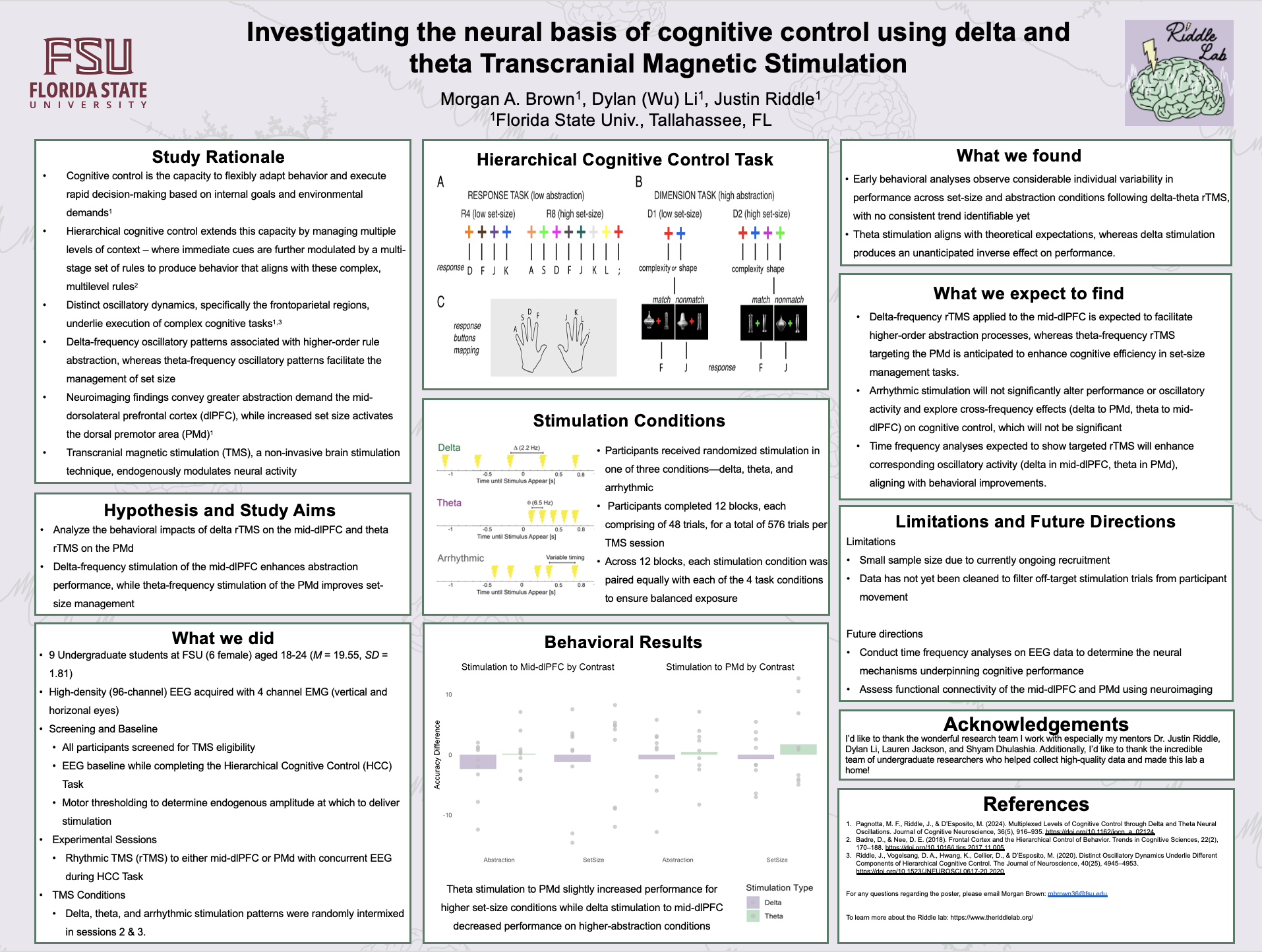Research Symposium
25th annual Undergraduate Research Symposium, April 1, 2025
Morgan Brown Poster Session 1: 9:30 am - 10:30 am/ Poster #160

BIO
My name is Morgan Brown, and I’m originally from Boca Raton, Florida. I’m currently majoring in Behavioral Neuroscience with a strong interest in internalizing disorders, particularly depression and trauma-related conditions. My academic focus centers on using neuroimaging techniques to explore the complex neural mechanisms that underlie psychiatric disorders and how novel treatment paradigms, such as Transcranial Magnetic Stimulation (TMS), can support and enhance psychotherapies.
Over the past year, I’ve had the opportunity to work as a research supervisor studying facets of cognitive control and how non-invasive brain stimulation influences cognitive performance. This experience has not only solidified my future career goals but also broadened my perspective on the intricate interplay between various neural regions and higher-order cognitive functions.
Moving forward, I’m committed to continuing both my research within the psychology department and my clinical involvement at Tallahassee Memorial Hospital. These dual experiences have shaped my long-term goal: to pursue a PhD in Clinical Neuroscience. I hope to contribute to advancing our scientific understanding of psychiatric conditions while also applying that knowledge to support compassionate, evidence-based care.
Investigating the neural basis of cognitive control using delta and theta Transcranial Magnetic Stimulation
Authors: Morgan Brown, Justin RiddleStudent Major: Behavioral Neuroscience
Mentor: Justin Riddle
Mentor's Department: Psychology Mentor's College: Arts and Sciences Co-Presenters:
Abstract
Hierarchical cognitive control involves managing multiple layers of rules and goals, enabling us to flexibly switch between and nest these rules to guide context-appropriate behavior. Distinct neural mechanisms have been identified in this process, particularly in the prefrontal cortex. Prior research has established that delta oscillatory activity is often implicated in rule abstraction, whereas theta oscillatory activity is associated with set size - both of which are key components of hierarchical cognitive control. Given these findings, the present study seeks to examine the behavioral effects of modulating these distinct oscillatory dynamics through transcranial magnetic stimulation (TMS), a safe, non-invasive brain stimulation tool. Among a sample of young adult participants, we expect that delta frequency stimulation will enhance performance regarding rule abstraction while theta frequency stimulation will improve behavioral metrics related to set-size management. Our future aims are to analyze neurophysiological data collected with high-density EEG to assess the causal role of delta and theta oscillations in underlying hierarchical cognitive control.
Keywords: Transcranial magnetic stimulation, EEG, cognitive control, oscillations, neuroscience

